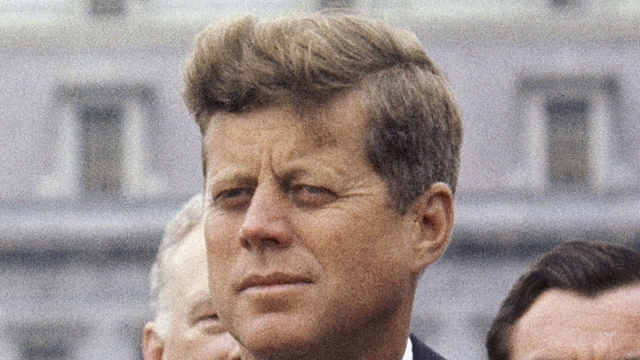How has the JFK assassination narrative changed over the years?

It was one of the most violent, shocking moments in American history — President John F. Kennedy gunned down at Dealey Plaza in Dallas, Texas.
Now, after thousands of books, investigations and conspiracies, 60 years later the fascination with JFK’s assassination remains.
Stephen Fagin, the curator for the Sixth Floor Museum in Dallas, says Kennedy’s life and death represented something new for the U.S.
“The motorcade came down Houston street and then made this sharp turn onto Elm, and it was just as they cleared those trees the assassination started,” said Fagin.
President John F. Kennedy’s assassination was an earthquake in American life. A Pew poll found it is still viewed as a top three historic event by Americans over 60 years old.
“They were really political royalty in the United States. So to have this young man cut down in such a violent fashion captured on film and in photographs — it had a devastating effect on the nation and the world,” Fagin said.
And that may be why the story of his death has never quite satisfied most Americans.
“You know, Gallup has done polling going all the way back to 1963, asking people do you believe in a Kennedy Assassination conspiracy. There’s actually never been a moment when less than 50% of the American public did not believe in a conspiracy,” he said.
The official account of Kennedy’s assassination — that Lee Harvey Oswald acting alone shot and killed the President — was backed up by a government sanctioned report informally known as the Warren Commission. But that hasn’t stopped decades worth of theories explaining JFK’s killing.
From the mob to the CIA to an umbrella gun on the grassy knoll — it’s one the most pored-over moments in U.S. history.
“I think part of the intrigue about Oswald and, and explanations for Kennedy’s murder, starts with Oswald’s own assassination,” he said.
Marc Selverstone is the director of presidential studies for the University of Virginia Miller Center.
“So we never get a chance to really hear from Oswald as to his backstory or his activities, in the days, weeks and months leading up to Nov. 22, 1963,” he said.
Despite the obsession with the end of Kennedy’s life, experts say his short presidency was one of America’s most consequential.
“Kennedy absolutely tees up for Lyndon Johnson a lot of what will become part of the great society, including Civil Rights,” he said. “He used Kennedy’s memory to push through that 1964 Civil Rights Act followed then by the 1965 Voting Rights Act that really began to change things in the United States.”
This article has been archived for your research. The original version from Google News can be found here.


